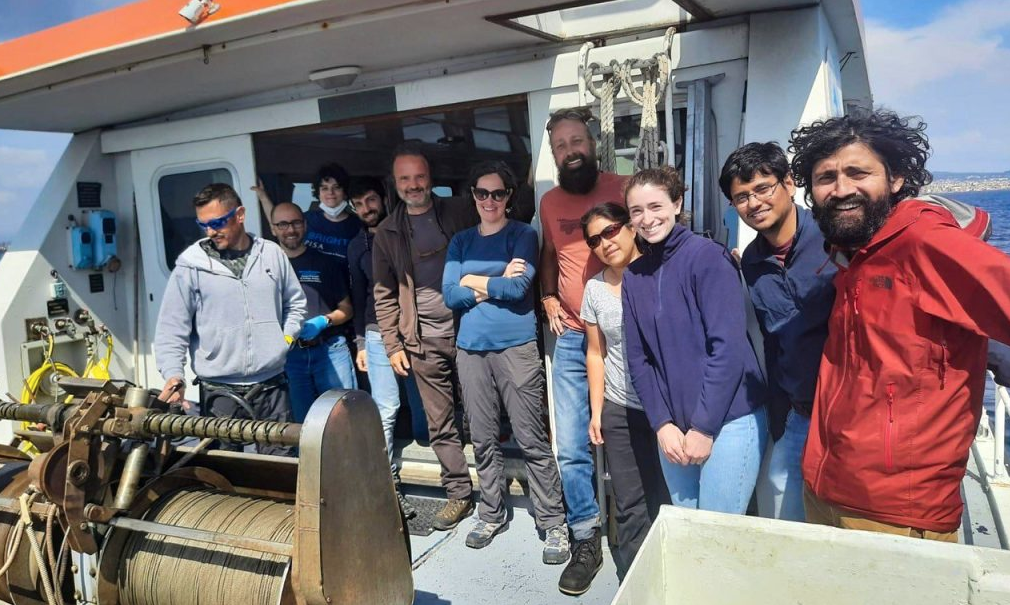By Carol Peters, EOAS Communications
Arriving on the Italian coast of the Mediterranean sea in April 2022, a group of researchers led by Rutgers faculty members Kimberlee Thamatrakoln and Kay Bidle, from the Rutgers Institute of Earth, Ocean, and Atmospheric Sciences (EOAS), had traveled to Naples to conduct fieldwork for a month at the Stazione Zoologica Anton Dohrn, one of the most prestigious and oldest international marine research stations in the world.
Their aim was to study how (and the extent to which) the physics, chemistry and biology of the Gulf of Naples ecosystem serves to facilitate virus infection of phytoplankton (microscopic marine algae) and export of carbon to depth, supporting their ongoing research programs into understanding how marine viruses fundamentally change phytoplankton metabolisms to make them more likely to aggregate into large particles and sink (export carbon) into the deep ocean, impacting the carbon cycle, and ultimately, Earth’s climate system.
These studies contribute to understanding the global scientific grand challenge of how marine viruses impact the carbon cycle, something that is largely unknown and unpredictable, even though viruses are by far among the most abundant entities in the ocean.
“Everything went fantastic, and we were thrilled to have this opportunity,” Bidle said. “The enthusiastic response and the inclusive desire of the broader community (including scientists from Northern Italy who normally work in freshwater deep lake systems) was really amazing . . . and added new measurement capabilities and insights.”
The field campaign in Naples was supported by the European Union’s Horizon 2020 research and innovation programme grant agreement No 730984, ASSEMBLE Plus project, through an award to Thamatrakoln titled “Project DaVINCi – Diatom Virus Infection of Natural Communities.”
Full article at Rutgers EOAS

